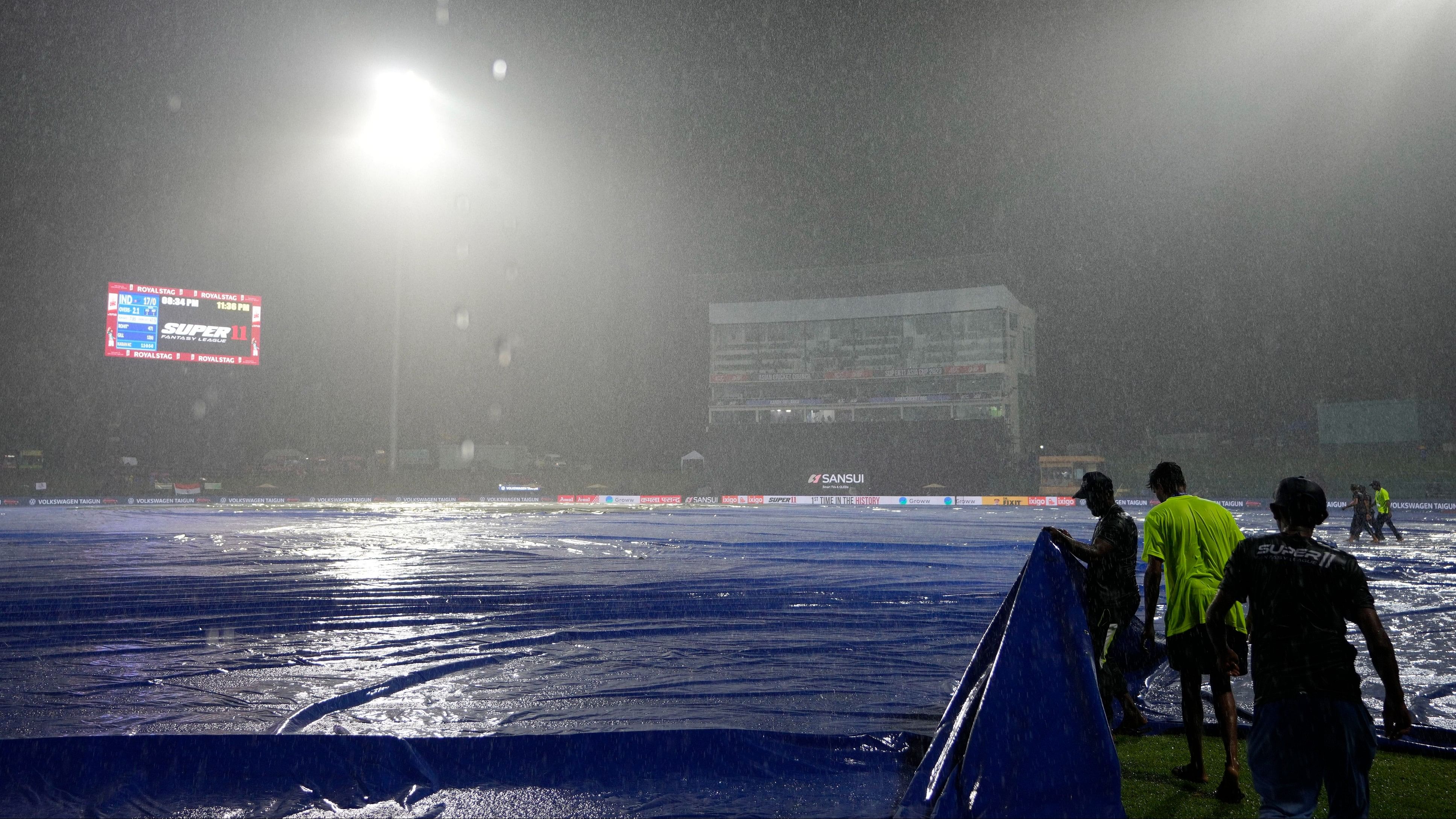
Asia Cup matches in Pallekele have been marred by persistent rains, scenario likely to be witnessed in Colombo where Super Four stage is scheduled.
Credit: AP/PTI Photo
The drama that lasted a couple of days found an unlikely but logical end as Sri Lankan Cricket officials revealed that the Super Four stage of the Asia Cup will remain in Colombo as per the original schedule.
There was speculation that the games would move to either Hambantota or Pallekele, where the league phase was held, because of torrential rains in Colombo.
But given that the rain seems to have relented in the country’s capital, members of the Asian Cricket Council have decided to stick to the original plan.
The decision could have come after the fact that rain in any case affected the two games which were held in Pallekele. India’s opening game against Pakistan was washed out, while their second game was reduced to a 23-over chase at the same venue.
Hambantota, although drier in comparison to Colombo, isn’t an ideal venue for a last-minute switch as this one because there are few accommodations available and logistics are quite the problem. In any case, it showered rather heavily in Hambantota on Tuesday.
This, the broadcasters had said earlier, were their concerns, and conveyed the same to the Board of Control for Cricket in India. Sri Lanka Cricket had offered Hambantota as an alternative venue, but the Indian board remained reluctant and eventually got their way in sticking to in Colombo.
In fact, the team, which had its World Cup squad announcement earlier in the day, left for Colombo soon after. They later announced that the team would not be practicing on Wednesday, meaning they have practiced only once since arriving in Sri Lanka.
ACC president Jay Shah wrote a letter explaining the reason for their decision to have matches in Sri Lanka rather than the UAE as suggested by the Pakistan Cricket Board.
"The Asia Cup 2022 edition was played in the UAE in the T20 format. It's important to emphasise that the dynamics of a T20 tournament cannot be directly compared to those of a 100-over one-day format.
"In this context, ACC members received feedback from their respective high-performance teams, expressing concerns about playing one-day matches in the UAE in the month of September. Such a schedule could have potentially led to player fatigue and an increased risk of injuries, particularly right before the all-important ICC Cricket World Cup.”
And in an indirect swipe at Najam Sethi’s criticism against the BCCI from a few days ago, he also added: “However, it's important to note that the leadership of the PCB underwent several changes, and this resulted in some back-and-forth negotiations, particularly regarding the crucial aspects such as tax exemption and insurance for matches.”